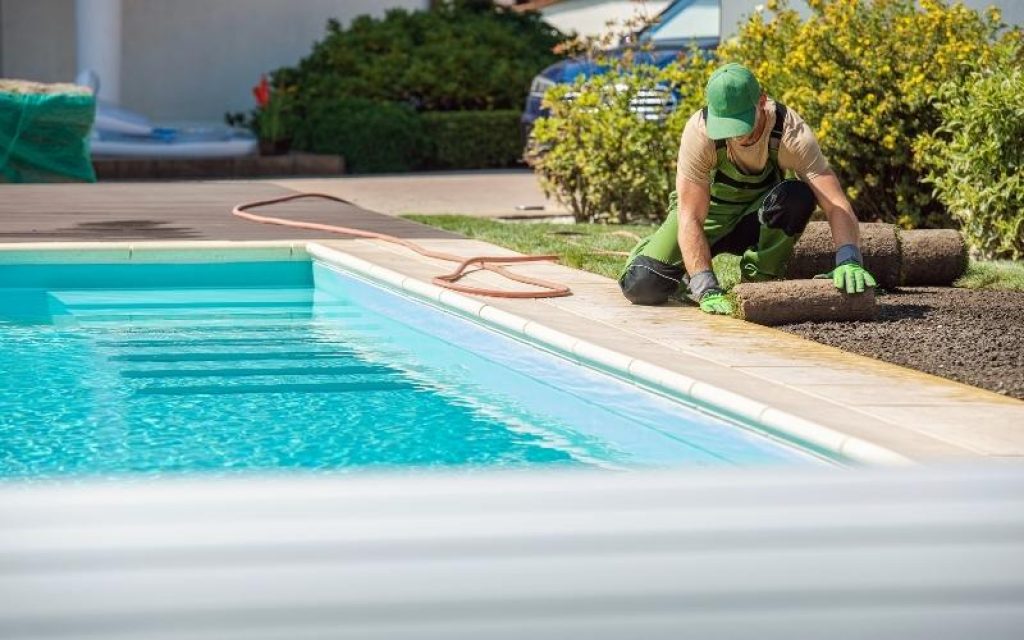In the summertime, the perfect way to beat the heat is by jumping into a cool pool. But heating your pool isn’t always cheap. In fact, it can cost you over $1,000 per year if you aren’t careful! So how do you save energy on pool heating? Here are some tips:

- Set your pool heater’s thermostat to the Right Temperature.
You can save energy on your pool heating bill by lowering the temperature of your pool water, but make sure not to get it too low. Pool heaters are more efficient at lower temperatures, and they won’t waste energy heating up the water if you aren’t planning on swimming in it anyway (you know who you are). 78°F is a comfortable temperature for swimming, and it’s also good for maintaining chemical levels in your pool.
- Purchase a heating system that has a heater bypass option.
You can save energy by purchasing a pool heater that has a heater bypass option. This allows you to heat the pool when you want to use it, and it prevents the heater from running when you don’t need it.
This is particularly useful in colder climates where there may be months between uses of your pool. The heater bypass feature also helps prevent heating when temperatures drop below freezing as it will shut off completely until temperatures rise above 40 degrees Fahrenheit (4 degrees Celsius).
If your system does not have this feature, then consider installing one yourself or hiring an expert for installation and maintenance services. However, keep in mind that many experts charge high prices for these services because they are difficult to install correctly without professional assistance; therefore, hiring someone familiar with such systems can help save money over time while ensuring proper functionality
- Make sure the pump and filter are working properly.
The pump and filter are the most important pieces of equipment for your pool. They’re responsible for circulating water through the system, keeping it clean and safe to swim in. If either one isn’t working properly, you can expect problems down the road (like algae growth and dirty water).
To ensure that your pump is functioning correctly:
- Check that it’s powered on at all times. Is there a switch? A timer? Some other way to turn it off without having to unplug everything? If not, consider investing in a simple timer so you don’t have to remember every time you want to use your pool or spa.
- Make sure all hoses are connected properly so they’re not leaking any water into the surrounding area. This can waste energy as well as money!
To ensure that your filter is working correctly: * Check each of its parts for clogs or debris; if any part seems blocked up with dirt or leaves, remove it from its housing and wash with soap until clean again before reinserting it into place again.* Make sure nothing has fallen inside which could block up water flow (sticks/twigs/etc).
- Keep your pool covered when not in use.
Pool covers are an inexpensive and effective way to save energy on pool heating. By covering your pool, you can help keep it warm during the winter. The cover will also keep leaves, insects and other debris out of your pool, which will prevent them from becoming trapped in the filter system or clogging up your pump. Before purchasing a cover for your pool make sure that it’s strong enough to support the weight of snowfall (a good rule of thumb is 1/3rd of its total volume). If you live in an area prone to heavy winds or storms that might damage your cover, consider investing in one made with UV-resistant materials like polyethylene or polypropylene.
- Consider using solar power.
Consider using solar power. Solar pool heating systems are the most efficient way to heat your pool and can cut your utility bill by half or more. These systems are easy to install and maintain, and they can be installed in a day, so there’s no need to wait for the weather to warm up before you start saving money on energy costs! Solar heating systems are typically covered by home insurance policies as well because they’re pretty safe; no one has ever been hurt by a solar panel (we checked).
- Use a solar blanket made from the same material as bulletproof glass that can actually heat the pool by 10 degrees overnight! And save you up to 80% on monthly heating costs.
Solar blankets are made from the same material as bulletproof glass. They can heat your pool by 10 degrees overnight and save you up to 80% on monthly heating costs.
- You use less energy when you keep your pool temperature at 78°F or lower.
You use less energy when you keep your pool temperature at 78°F or lower. To make sure you’re not wasting energy, take these steps:
- Make sure the pool pump and filter are working properly. If an air leak causes water to return to the pool through the skimmer instead of flowing out through its outlet, it will cool down and increase your heating cost.
- Cover your pool when it’s not in use for extended periods of time (see the section titled “Covering Your Pool Heating Equipment” later in this guide). This helps reduce evaporation and heat loss from wind gusts sweeping across uncovered equipment such as pumps and heaters.
- Consider using solar power to heat your water without using additional electricity from utility companies; learn more about how solar works here.
Conclusion
These tips will help you save energy and money on your pool heater. If you’re still struggling with high utility bills, consider upgrading to solar heating. You’ll be able to save up to 80% on monthly heating costs, while also preventing pollution from fossil fuels.